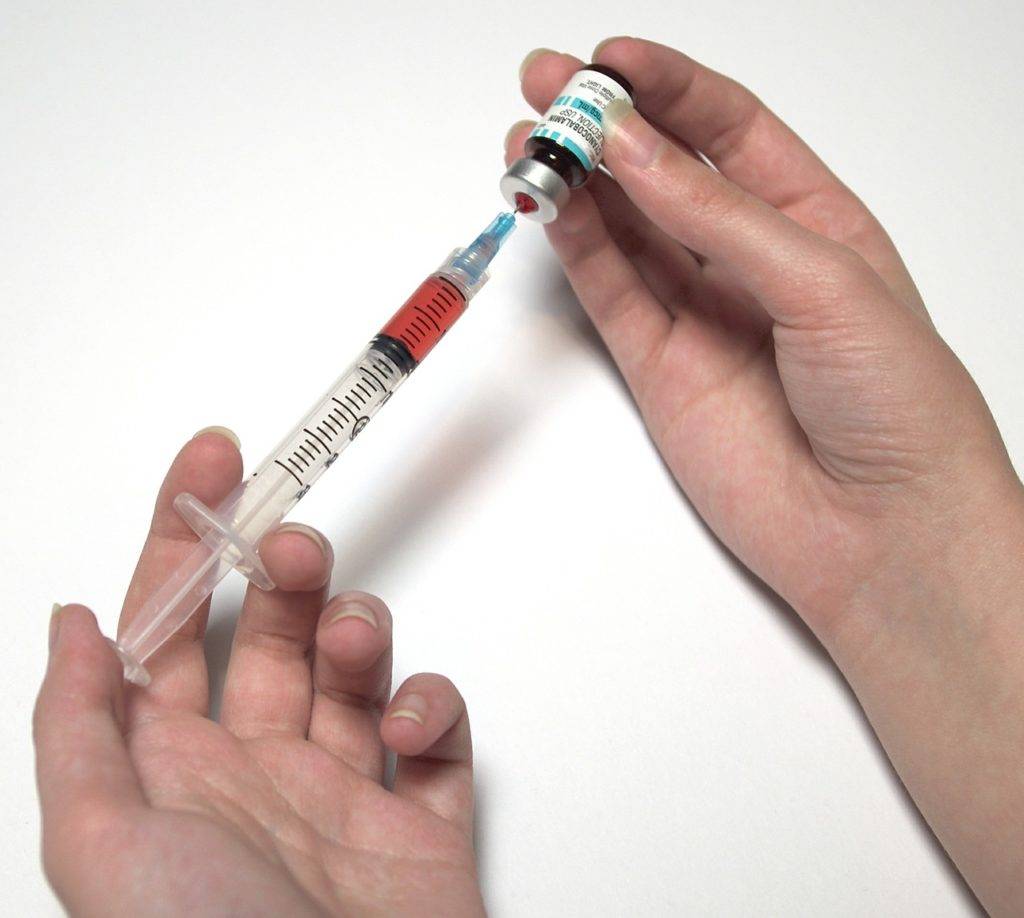Vaccines keep our children healthy and safe from preventable diseases. Among the essential vaccines, the MMR vaccine stands out as a crucial one for every child. The MMR vaccine protects against three severe diseases: measles, mumps, and rubella.
These diseases can cause significant health issues and even lead to life-threatening complications. In this blog post, we will explore the key health benefits of the MMR vaccine, explaining why it is necessary for every child.
Understanding the MMR Vaccine
The MMR vaccine is a combination vaccine that protects against three diseases:
Measles
Measles is a highly contagious viral disease. Symptoms include high fever, cough, runny nose, and a characteristic red rash that spreads across the body. Measles leads to serious complications such as pneumonia, encephalitis (brain swelling), and even death. Vaccination is the best way to prevent measles and its severe complications.
Measles spreads easily through respiratory droplets when an infected person coughs or sneezes. It lingers in the air for up to two hours, making it highly transmissible.
Before the vaccine was introduced, nearly every child contracted measles, often to severe illness and complications. In 1980, measles caused an estimated 2.6 million deaths worldwide. The introduction of the measles vaccine has dramatically reduced this number.
Mumps
Mumps is a viral infection causing painful swelling of the salivary glands. Symptoms include fever, headache, muscle aches, and fatigue. Mumps leads to complications like meningitis (inflammation of the brain and spinal cord membranes), hearing loss, and, in severe cases, inflammation of the testicles or ovaries, which affect fertility.
Mumps spreads through respiratory droplets and direct contact with an infected person. While mumps is generally mild in children, it causes severe complications in adults.
This includes orchitis (inflammation of the testicles) in males and oophoritis (inflammation of the ovaries) in females, which impacts fertility. Vaccination helps prevent these complications and reduces the spread of the virus.
Rubella
Rubella, or German measles, is a viral infection that causes a mild fever and a rash. While rubella is mild in children, it has severe consequences if contracted by pregnant women, leading to congenital rubella syndrome in the baby.
This syndrome causes serious birth defects, including heart problems, hearing and vision loss, and intellectual disabilities. Rubella spreads through respiratory droplets when an infected person coughs or sneezes. The virus is transmitted from a pregnant woman to her unborn baby, leading to congenital rubella syndrome.
The introduction of the rubella vaccine has significantly reduced the incidence of this syndrome, protecting both mothers and their unborn children from severe complications.
How the MMR Vaccine Works
The MMR vaccine works by introducing weakened forms of the measles, mumps, and rubella viruses into the body. This doesn’t cause diseases but stimulates the immune system to produce antibodies. These antibodies remain in the body and protect by recognizing and fighting off these viruses if the person is exposed to them in the future.
Vaccination Schedule
The MMR vaccine is administered in two doses. The first dose is given to children between 12 and 15 months, and the second is given between 4 and 6 years of age. This schedule ensures that children receive the maximum possible protection when they are most vulnerable to these diseases.
Key Health Benefits of the MMR Vaccine
1. Prevention of Serious Diseases
The primary benefit of the MMR vaccine is the prevention of measles, mumps, and rubella. By vaccinating children, we protect them from the potentially severe complications associated with these diseases.
Vaccination reduces the incidence of these diseases, preventing outbreaks and protecting vulnerable populations, such as newborns and individuals with weakened immune systems.
- Measles Prevention
Measles was once a common childhood illness, thanks to vaccination, its incidence has drastically decreased. Before the introduction of the vaccine, measles caused widespread outbreaks, leading to hospitalizations and deaths.
The MMR vaccine has been instrumental in reducing the number of measles cases, thus protecting children from its dangerous complications, including pneumonia, encephalitis, and death.
- Mumps Prevention

Mumps causes painful swelling of the salivary glands, fever, and muscle aches. The complications of mumps are severe, especially in post-pubertal individuals, where it leads to meningitis and inflammation of the ovaries or testicles.
The MMR vaccine significantly reduces the risk of contracting mumps and its associated complications, providing a critical layer of protection.
- Rubella Prevention
Rubella, although typically mild in children, poses a significant risk to pregnant women. If a woman contracts rubella during pregnancy, it can lead to congenital rubella syndrome in the baby, causing severe birth defects. The MMR vaccine helps prevent rubella infections and protects unborn babies from these devastating consequences.
2. Herd Immunity
When a significant portion of the population is vaccinated, it creates herd immunity. Herd immunity helps protect those who aren’t immune or can’t be vaccinated, such as newborns or individuals with compromised immune systems and those who can’t be vaccinated for other reasons.
- Community Protection
Herd immunity is a critical public health concept. It means that when a large percentage of a population is immune to a disease, either through vaccination or previous illness, the spread of the disease is limited.
Maintaining high vaccination rates is essential to achieving and maintaining herd immunity, which is why vaccinating your child contributes to community health. By vaccinating your child, you’re also helping to protect the community.
3. Safe and Effective
Numerous studies have confirmed the safety and efficacy of the MMR vaccine. Side effects are mild, such as a low-grade fever or mild rash, and serious side effects are rare. The benefits of vaccination far outweigh the risks.
The vaccine undergoes rigorous testing and monitoring to meet the highest safety standards. Children who receive the MMR vaccine experience no adverse effects, and protection against measles, mumps, and rubella is invaluable.
- Rigorous Testing and Monitoring

Before any vaccine is approved for use, it undergoes extensive testing in clinical trials to ensure its safety and effectiveness. The MMR vaccine is no exception. It has been used for decades and has a well-established safety profile.
After approval, vaccines are continuously monitored for any potential side effects through various safety surveillance systems. This ongoing monitoring ensures that any risks are quickly identified and addressed.
Addressing Common Concerns
1. Vaccine Safety
This is one of the most common concerns about the MMR vaccine. Extensive research proves that the MMR vaccine is safe and doesn’t cause autism, a myth that has been debunked by numerous studies. Vaccines go through rigorous testing and monitoring to ensure their safety and effectiveness.
- Debunking Myths
The myth linking the MMR vaccine to autism originated from a now-discredited study published in 1998. The study was later retracted due to ethical and scientific flaws, and numerous large-scale studies have found no link between the MMR vaccine and autism.
Health organizations worldwide, including the World Health Organization (WHO) and the Centers for Disease Control and Prevention (CDC), affirm that the MMR vaccine is safe and does not cause autism.
2. Natural Immunity vs. Vaccine-Induced Immunity
Some parents believe natural immunity, acquired by contracting the disease, is better than vaccine-induced immunity. However, the risks associated with natural infection far outweigh the benefits, exposing children to unnecessary risks and complications.
Vaccination provides immunity without subjecting children to these risks, ensuring they are protected without enduring the diseases’ harmful effects. The MMR vaccine is a safe way to develop immunity without experiencing the potentially severe complications of the disease.
- Comparing Immunity
While it is true that natural infection leads to immunity, the risks involved are substantial. Measles causes severe respiratory and neurological complications, mumps can lead to sterility in men, and rubella results in severe birth defects.
In contrast, the MMR vaccine offers immunity without exposing children to these serious health risks. The vaccine-induced immunity is long-lasting and highly effective.
3. Importance of Timely Vaccination
The recommended vaccination schedule is designed to provide protection when children are most at risk. The first dose of the MMR vaccine is given at 12-15 months, as maternal antibodies that protect newborns from these diseases wane during this period.
The second dose, administered at 4-6 years, ensures long-lasting immunity and boosts protection. Adhering to this schedule is essential for maintaining individual and community health. Delaying or skipping vaccines leaves children unprotected, increasing the risk of disease outbreaks.
- Risk of Delayed Vaccination
Delaying vaccination can have serious consequences. During the period when a child is unvaccinated, they remain vulnerable to contracting measles, mumps, and rubella. These diseases spread rapidly, especially in settings where many children are unvaccinated.
Real-Life Impact of the MMR Vaccine
Case Studies and Success Stories
Eradication of Measles in the US
The MMR vaccine has significantly reduced the incidence of measles in the United States. Before the vaccine was available, measles caused widespread outbreaks and numerous deaths. Thanks to high vaccination rates, measles was declared eliminated in the US in 2000.
The elimination of measles in the US is a significant public health achievement. Before the vaccine, measles was a common childhood disease with frequent outbreaks and high mortality rates. The introduction of the MMR vaccine led to a dramatic decline in measles cases, culminating in the elimination of endemic measles transmission
However, imported cases from unvaccinated travelers can still spark outbreaks, emphasizing the need for continued vigilance and high vaccination rates.
Controlling Mumps Outbreaks
Mumps outbreaks still occur, particularly in crowded settings like schools and colleges. However, high vaccination rates have kept these outbreaks relatively small compared to the pre-vaccine era. Vaccinated individuals who contract mumps typically experience milder symptoms and fewer complications.
Mumps outbreaks are common in environments where close contact facilitates virus transmission, such as schools, colleges, and sports teams. High vaccination coverage prevents large-scale outbreaks, and vaccinated individuals who contract mumps have less severe symptoms and recover more quickly.
Maintaining high vaccination rates is essential for controlling mumps and minimizing its impact on public health.
Protecting Pregnant Women and Newborns from Rubella
The widespread use of the MMR vaccine has drastically reduced the incidence of rubella and congenital rubella syndrome. By ensuring children are vaccinated, we protect pregnant women and their unborn babies from the devastating effects of rubella.
The Role of Healthcare Providers
Educating Parents
Healthcare providers play a crucial role in educating parents about the importance of the MMR vaccine. They provide reliable information, address concerns, and answer questions from parents. Trusted healthcare providers are the best source of information for making informed decisions about vaccinations.
- Providing Reliable Information
Healthcare providers offer evidence-based information about the safety and effectiveness of the MMR vaccine. They explain the benefits, the risks of vaccine-preventable diseases, and follow the recommended vaccination schedule. This information helps parents make informed decisions about their child’s health.
Addressing Vaccine Hesitancy
Vaccine hesitancy, or the reluctance to vaccinate despite the availability of vaccines, poses a challenge to public health. Healthcare providers address vaccine hesitancy by listening to parents’ concerns, providing accurate information, and building trust. Open and respectful communication helps alleviate fears and encourage vaccination.
- Building Trust

Trust is essential in addressing vaccine hesitancy. Healthcare providers who establish strong, trusting relationships with parents are more likely to succeed in encouraging vaccination. By showing empathy, understanding, and respect, providers build trust and help parents feel confident in vaccinating their children.
Emphasize the Importance of the MMR Vaccine
The MMR vaccine protects children from measles, mumps, and rubella. It safeguards individual health and contributes to community health through herd immunity. Through vaccination, it prevents them from serious diseases, reduces healthcare costs, and saves lives.
Parents need to understand the benefits of the MMR vaccine and ensure their children receive it on time. For more information on vaccinations and their importance, check out these informative blog posts on Omega Pediatrics.
- The MMR Vaccine is Crucial for Children: Here’s Why
- Vaccine-Friendly Pediatrician Near Me or a Holistic Pediatrician Who Cares
Vaccination is a simple, safe, and effective way to protect our children and communities. Ensure your child gets the MMR vaccine to ensure a healthy future for everyone.







